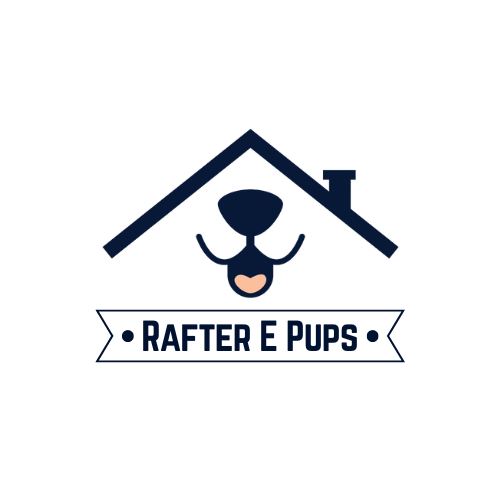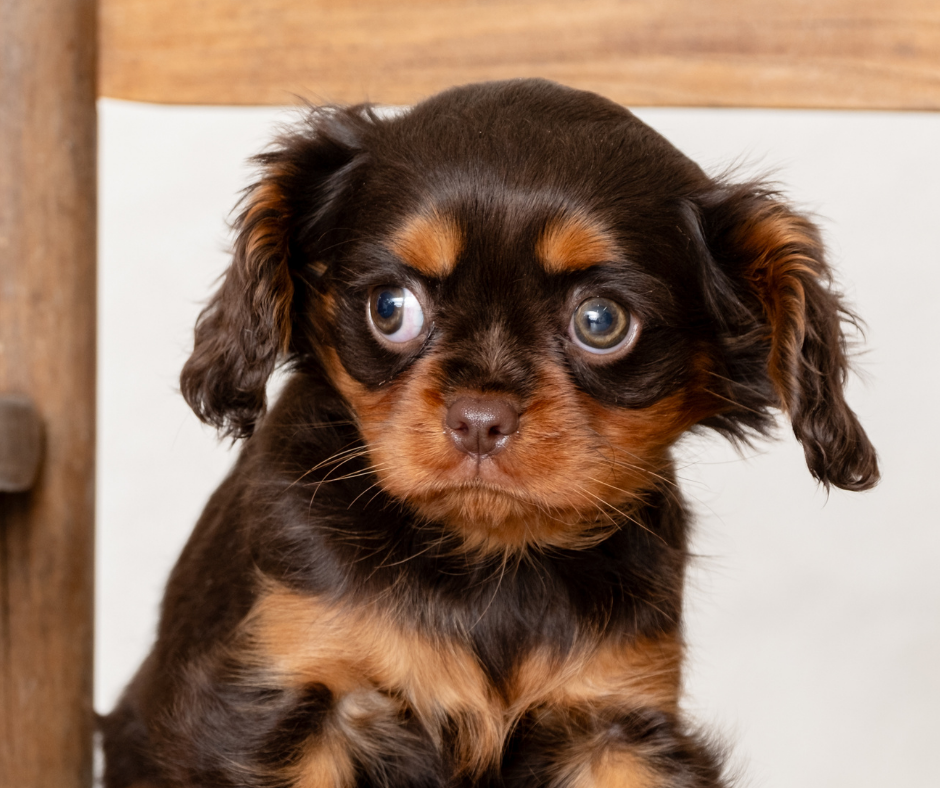Cavalier King Charles Spaniels are known for their charming personalities and affectionate nature. These small, graceful dogs make wonderful companions, especially in families. However, like all puppies, the Cavalier puppy is prone to a common behavior issue: chewing on things. Chewing is a natural and necessary behavior for puppies, but it can become a problem when they target your belongings or furniture.
To prevent your Cavalier puppy from chewing on things, start by puppy-proofing your home and removing temptations like shoes and cords. Provide a variety of appropriate chew toys to redirect their chewing behavior and rotate them to keep your puppy engaged. Use bitter sprays or deterrents on objects you want to protect, and supervise your puppy or utilize crate training when you can't. Consistent positive reinforcement, like rewarding good behavior with treats and praise, will encourage them to chew on their toys instead of your belongings.
Understanding Why Your Cavalier Puppy Chews
Before we delve into prevention and training techniques, it's crucial to understand why puppies, including Cavaliers, chew on things. Chewing is a natural instinct for dogs and serves several purposes:
- Teething: Just like human babies, puppies go through teething phases. Chewing helps soothe their sore gums and helps loosen baby teeth.
- Exploration: Puppies use their mouths to explore the world around them. Chewing is a way for them to learn about different textures, tastes, and objects.
- Boredom: Puppies have bundles of energy and can get bored easily. Chewing provides mental stimulation and can help alleviate boredom.
- Stress and Anxiety: Puppies, like humans, can experience stress and anxiety. Chewing is a coping mechanism for them during stressful situations.
- Dental Health: Chewing can help maintain good dental health by removing plaque and tartar from their teeth.
Now that we understand why puppies chew, let's explore how to prevent them from damaging your belongings.
Preventing Unwanted Cavalier Puppy Chewing
As any Cavalier owner will tell you, they make fantastic companions. However, like all puppies, Cavaliers can be prone to a common behavior issue: chewing on things they shouldn't. Chewing is a natural and instinctive behavior for dogs, but it can become problematic when it involves your furniture, shoes, or other valuable possessions.
Puppy-Proof Your Home:
- Begin by puppy-proofing your home just like you would baby-proof it for a human child. Remove or secure any items that are within your puppy's reach and may tempt them to chew.
- Keep shoes, clothing, remote controls, chargers, and small objects out of reach.
- Cover electrical cords with protective tubing or keep them hidden.
- Use baby gates to block off areas where you don't want your puppy to roam freely.
Provide Appropriate Chew Toys:
- To redirect your puppy's chewing behavior, provide a variety of appropriate chew toys. Look for toys specifically designed for teething puppies, as they are gentler on their developing teeth and gums.
- Durable rubber toys, rope toys, and puzzle toys are excellent options for Cavaliers.
- Rotate their toys regularly to keep them engaged and prevent boredom.
Use Bitter Spray or Deterrents:
- Bitter-tasting sprays or pet-safe deterrents can be applied to objects you want to protect. These products taste unpleasant to dogs, discouraging them from chewing.
- Test the spray on a small, inconspicuous area of the object to ensure it won't damage the item.
Supervise and Crate Training:
- When you can't directly supervise your puppy, confine them to a safe area using a crate or playpen.
- Crate training teaches your puppy that the crate is a safe and comfortable place to be. Never use the crate as a form of punishment.
Exercise and Play:
- Cavaliers need regular exercise and playtime to burn off energy and reduce boredom. Ensure your puppy gets daily walks and play sessions.
- Mental stimulation is just as important as physical exercise. Interactive puzzle toys can help keep your puppy engaged.
Positive Reinforcement Training:
- Utilize positive reinforcement techniques to encourage good behavior. When your puppy chews on their toys instead of your belongings, reward them with praise and treats.
- Avoid scolding or punishing your puppy for chewing on the wrong items, as this can create fear and anxiety.
Seek Professional Help:
- If your Cavalier's chewing behavior persists despite your efforts, consider consulting a professional dog trainer or behaviorist. They can provide personalized guidance and training to address the issue.
Training Techniques to Stop Your Cavalier Puppy from Chewing
In addition to prevention, you can employ specific training techniques to teach your Cavalier not to chew on inappropriate items:
Teach the "Leave It" Command:
- Start by teaching your puppy the "leave it" command. Hold a treat in your hand, show it to your puppy, and say "leave it." When your puppy refrains from trying to take the treat, reward them with a different treat from your other hand.
- Gradually increase the difficulty by placing treats on the ground and asking your puppy to leave them alone.
Encourage Toy Play:
- Engage in interactive play with your puppy using their toys. This not only reinforces the idea that toys are for chewing but also strengthens the bond between you and your pup.
- Whenever your puppy starts to chew on something inappropriate, redirect their attention to a toy.
Use Positive Reinforcement:
- Reward your puppy with treats, praise, and affection when they chew on their toys. Positive reinforcement helps reinforce the desired behavior.
- Be consistent in rewarding good behavior to help your puppy understand what you expect from them.
Consistency is Key:
- Consistency is crucial in training your Cavalier not to chew on things. All family members should follow the same rules and reinforce the same behaviors.
- If someone allows the puppy to chew on inappropriate items, it can confuse the dog and make training less effective.
Common Mistakes to Avoid When Training Your Cavalier Puppy
While trying to prevent and train your Cavalier not to chew on things, it's important to avoid common mistakes that can hinder your progress:
- Punishment: Avoid punishing your puppy for chewing on the wrong items. Punishment can lead to fear and anxiety, making the problem worse.
- Lack of Supervision: Leaving your puppy unsupervised in an area where they have access to items they shouldn't chew on can lead to destructive behavior.
- Inconsistent Rules: Ensure that everyone in your household follows the same rules and enforces consistent behaviors to prevent confusion for your puppy.
- Neglecting Exercise: Cavaliers are active dogs and need regular exercise to stay healthy and happy. Neglecting their exercise needs can result in excess energy, leading to more chewing.
- Not Providing Enough Chew Toys: Make sure your puppy has a variety of appropriate chew toys. A lack of engaging toys may lead them to explore other items.
Chewing is a natural behavior for puppies, including Cavaliers, but with the right training and prevention strategies, you can keep your home and belongings safe from their teeth. Remember to be patient and consistent in your efforts, and always prioritize positive reinforcement over punishment. By providing appropriate chew toys, supervising your puppy, and teaching them commands like "leave it," you can raise a well-behaved and happy Cavalier King Charles Spaniel that doesn't destroy your possessions. With time, dedication, and love, you'll enjoy a strong bond with your furry companion and a well-behaved, non-chewing Cavalier.

